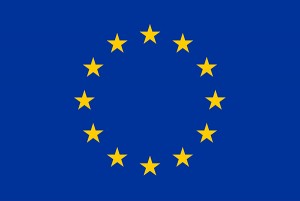Since October 1st 2019 until Deecmber 31st 2023, MultiMed Engineers participated in the GATEKEEPER Project — Smart living homes – whole interventions demonstrator for people at health and social risk.
The overarching objective of the Project has been to connect healthcare providers, businesses, entrepreneurs, elderly citizens and the communities they live in, in order to originate an open, trust-based arena for matching ideas, technologies, user needs and processes, aimed at ensuring healthier independent lives for the ageing populations.
At the end of a multi-years effort, GATEKEEPER embodies an open source, European, standard-based, interoperable and secure framework available to all developers, for creating combined digital solutions for personalised early detection and interventions that
- harness the next generation of healthcare and wellness
innovations - cover the whole care continuum for elderly citizens, including primary, secondary and tertiary
prevention, chronic diseases and co-morbidities - straightforwardly fit “by design” with European regulations,
on data protection, consumer protection and patient protection - are subjected to trustable certification processes
- support value generation through the deployment of advanced business models based on the VBHC paradigm

GATEKEEPER demonstrated its impact potential by scaling up, during a 51-months work plan, towards the deployment of solutions that have involved almost 10.000 elderly citizens, supply and demand side actors (authorities, institutions, companies, associations, academies) in 8 regional communities, from 7 EU member states.
MultiMed Engineers has been in particular involved in the design, implementation and deployment of the GATEKEEPER demonstration site in Regione Puglia, in cooperation with the Puglia Regional Government, Fondazione Politecnico di Milano and the hospital Casa Sollievo della Sofferenza. It also contributed, jointly with relevant Partners in WP3, WP4 and WP6, to the definition of IoT-based approaches, data management for early detection/intervention applications, and medical use case definition.
In addition to these four Partners, the Project Consortium also included: Medtronic Ibérica (SP, Project Coordinator), Engineering Ingegneria Informatica (IT), Samsung UK (GB), Hewlett Packard Italiana (IT), Universidad Politécnica de Madrid (SP), CERTH (GR), STMicroelectronics (FR), Mysphera (SP), ERCIM (FR), HL7 Foundation (BE), ECHAlliance (IE), UDG Alliance (CH), Mandat International (CH), Universiteit Utrecht (NL), CIBER (SP), Panepistimio Ioanninon (GR), Tecnalia (SP), University of Warwick (GB), Medisanté (CH), Open Evidence (SP), Funka (SE), Servicio Aragones de la Salud (SP), Osakidetza (SP), Sense4Care (SP), Technische Universität Dresden (DE), Carus Consilium Sachsen (DE), The Open University (GB), Harokopio University (GR), Intermunicipal Development Company Digital Cities of Central Greece (GR), Panepistimio Patron (GR), Stegi Evgirias Archaggelos Michael Kaimaklioy (CY), Pagkyprios Syndesmos Karkinopathon kai Filon 1986 (CY), Ibermatica (SP), Asociacion Centro de Excelencia Internacional en Investigacion sobre Cronicidad (SP), EIP on AHA Reference Sites Collaborative Network (BE), Biobeat Technologies (IL), Bioassist (GR), Universytet Medyczny w Lodzi (PL), Orthokey Italia (IT).
Project Website: https://www.gatekeeper-project.eu/
 This project has received funding from the European Union’s Horizon 2020 research and innovation programme under grant agreement No 857223
This project has received funding from the European Union’s Horizon 2020 research and innovation programme under grant agreement No 857223
 MultiMed Engineers
MultiMed Engineers